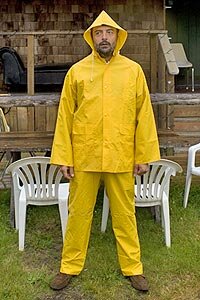At the time of writing I am making last minute preparations to go to Sundance after a marathon two years of production and post-production of our ocean epic The End Of the Line. We only finished last week.

About two and half years ago I picked up a book called The End of The Line by Charles Clover in an airport lounge (a moment I have replayed many times in my mind since. Sometimes during the harder periods of production I wished that I had chosen the romantic novel sitting next to it).
I was on the way to Los Angeles to talk about making my previous doc into a feature and when I got off the plane I knew I had to make this book into a film and I put the feature on hold.
It was the film about the oceans I always had wanted to make but until that time no one had put all the pieces together in such an elegant, devastating and coherent way.
It has been an incredible experience for the whole Fish Team, myself included, to have worked on a film that we believe and hope will have a real impact on how we treat our seas.
The End Of The Line asks quite a hard question – how is it possible that 3.5 billion years of evolution in the sea could be extinguished in a single human lifetime?
Are we really going to see the end of wild fish in the sea over the next half century?
The Hollywood pitch for our film would be ‘The Blue Planet meets a lie detector test’. That film and many other natural history films about the oceans perpetuate a myth about the sea that is simply untrue – that life exists untouched by man.
Man as the biggest predator in the system is changing the oceans in unimaginable ways – we are inducing evolutionary changes in fish by catching them before they have a chance to breed, we are turning the food web back into the primordial soup from whence it came, we could (the research is inconclusive and ongoing) be affecting the oceans ability to absorb carbon dioxide by overfishing.
Our film tells the story of the few people who only recently discovered the magnitude of this problem and set about working out the solutions – and here’s the real reason why we made it – it’s easy to fix. Compared to other global problems of comparable size, it’s a cinch.
My last feature doc Unknown White Male premiered at Sundance 2005 and the reaction was tremendous and the experience unforgettable.
But with The End Of The line I suddenly realised how important festivals like Sundance really are. If you are a film maker working on difficult subject matter, working against the flow of society, the market and industry, the validation selection to Sundance brings is all the more meaningful.
The entire team felt that our selection was a huge philip after two years of very hard work and sacrifice. We are all very proud to be at Sundance and look forward to showing our film to as many people as possible.
We are thankful to all the people who made this film possible, that have allowed us to get this far, but this is only the beginning of our campaign.
At the moment The End Of The Line for us, happily, is nowhere in sight.
![]()



0 Responses to “Preparing for the Sundance Film Festival”
Leave a Reply